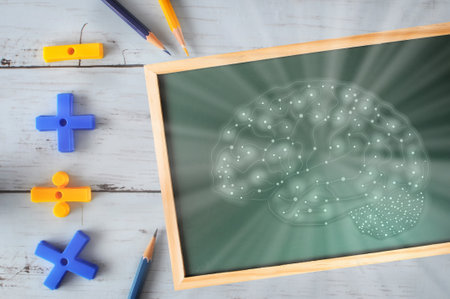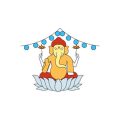Introduction: Horoscope and Indian Education — A Cosmic Connection
In the vibrant tapestry of Indian culture, astrology—locally known as Jyotish—holds a special place in the hearts of millions. For generations, families across India have turned to horoscopes not just for marriage alliances or business ventures, but also to guide the educational journeys of their children. The intricate relationship between Jyotish and academic aspirations is deeply rooted in tradition, where parents consult astrologers to determine auspicious times for school admissions, career choices, and even for selecting suitable study streams. This cosmic connection shapes decisions with the belief that planetary alignments can influence a childs intelligence, learning capacity, and future success. In this article, we explore how horoscope readings continue to play a significant role in the Indian education system, weaving together faith, family expectations, and the ever-evolving dreams of young minds.
2. Cultural Significance of Horoscope in Indian Families
In the vibrant tapestry of Indian culture, horoscopes or kundalis play a pivotal role, especially when it comes to important milestones in a childs life, like entering school or college. Many Indian families, regardless of region or religion, consult astrologers to analyze planetary positions and their impact on a childs educational journey. This tradition isnt just about superstition—it is deeply woven into the fabric of Indian values and family decision-making.
Before a child steps into the world of formal education, parents often seek an astrologers guidance. The kundali, which is essentially a birth chart created based on the exact time and place of birth, is meticulously examined to determine auspicious timings (muhurat) for starting school, choosing subjects, or even picking the right educational institution. It’s not uncommon for families to delay admissions by a year or select specific dates for beginning classes, all based on planetary alignments believed to enhance learning and intelligence.
How Kundalis Shape Educational Choices
The belief is that planetary influences at the time of birth can reveal a child’s innate strengths, learning abilities, and even potential challenges. For instance, if Mercury (Budh), which rules intellect and communication, is strongly placed in the kundali, parents may feel confident about their child’s academic prospects. Conversely, challenging planetary positions might lead parents to perform rituals or wear specific gemstones to counteract negative effects.
| Astrological Element | Influence on Education | Common Parental Actions |
|---|---|---|
| Mercury (Budh) | Enhances intellect & communication skills | Encourage public speaking or writing activities |
| Jupiter (Guru) | Wisdom & knowledge expansion | Select advanced subjects; prefer science/commerce streams |
| Saturn (Shani) | Discipline & perseverance | Choose rigorous schools; instill routine-based studies |
| Ketu/Rahu (Nodes) | Distractions or confusion in studies | Consult astrologer for remedies; wear specific stones |
The Deep Roots of Astrology in Everyday Life
This reliance on horoscopes goes beyond mere tradition—its seen as aligning with destiny and ensuring children have every possible advantage as they begin their educational journey. It also reflects the collective mindset that education is not just about textbooks but holistic growth shaped by cosmic forces. In Indian society, where family honor and future prospects are closely tied to academic achievement, consulting kundalis becomes both a cultural practice and an emotional comfort for parents.
![]()
3. Horoscope and the Selection of Educational Streams
In India, horoscopes play a significant role when it comes to choosing the right educational stream for children. From an early age, many parents consult experienced astrologers or family pundits to analyse their childs janam kundali (birth chart) before making any big decisions related to academics. The belief is that each planet and its position at the time of birth has a direct impact on a child’s interests, strengths, and learning abilities.
How Astrologers Guide Subject Choices
Astrologers carefully study important elements in the birth chart such as the fifth house (representing intellect and education), Mercury (planet of intelligence and communication), Jupiter (wisdom and knowledge), and the position of the Moon (mind and emotions). Based on these factors, they suggest suitable educational paths:
Engineering and Technology
If Mars is strong in the kundali, or there is a good influence of Mercury, astrologers may recommend engineering or technical fields. These planets are believed to bestow analytical thinking, logical skills, and problem-solving abilities—traits needed for science and technology streams.
Medicine and Life Sciences
For students whose charts show a powerful influence of Jupiter or Sun, with supportive aspects from Moon, a career in medicine or life sciences is often advised. These planets are connected with healing energy, compassion, wisdom, and a desire to serve society.
Arts, Humanities, and Commerce
If Venus is well placed in a child’s horoscope, or if there’s an emphasis on creative houses, astrology experts may guide families towards arts, humanities, music, fashion designing, or commerce. Venus is known as the planet of creativity, beauty, and artistic talent.
Cultural Acceptance of Astrological Advice
This practice is deeply woven into Indian culture. Many families believe that aligning a child’s studies with astrological guidance not only brings academic success but also ensures overall happiness and personal growth. While some view it as an age-old tradition, others see it as an additional tool alongside modern aptitude tests to find the best fit for their children’s unique potential.
4. Belief vs. Science: Horoscope’s Impact on Perceived Intelligence
In the colourful landscape of Indian society, there is an ongoing tug-of-war between traditional astrology and modern science, especially when it comes to education and intelligence. While many families trust the stars and planets to reveal their childs intellectual destiny, science offers a different lens—one that values cognitive skills, hard work, and learning environments over birth charts.
The Traditional Perspective: Astrology’s Influence
Astrology has long played a role in shaping perceptions of childrens abilities. Parents often consult astrologers for guidance on their childs studies, career choices, and even subject selection. This can lead to labelling children as “naturally intelligent” or “less gifted” based on planetary positions rather than actual academic performance or interests.
Modern Science: Focusing on Skills and Environment
On the other hand, modern science argues that intelligence is shaped by genetics, environment, education quality, and personal effort. Psychologists and educators believe that every child can develop their intelligence with the right support system. Relying too much on horoscopes can limit opportunities for children who might otherwise excel if given encouragement and resources.
Belief vs. Science: Key Differences
| Aspect | Traditional Horoscope View | Modern Scientific View |
|---|---|---|
| Source of Intelligence | Planetary positions at birth | Genetics, environment, learning |
| Role in Education Choices | Astrological advice often followed | Aptitude tests and counselling preferred |
| Opportunity for Growth | Seen as fixed or predetermined | Believed to be flexible and improvable |
| Parental Expectations | Based on horoscope predictions | Based on observed strengths/interests |
Impact on Children’s Self-Image
This tug-of-war shapes how children see themselves. A positive horoscope might boost confidence (sometimes regardless of actual skill), while a less favourable one could discourage effort or ambition. Science encourages a growth mindset—teaching kids that intelligence can be nurtured through perseverance and curiosity.
Cultural Coexistence in Schools
Todays’ Indian classrooms are a blend of tradition and progress. Some schools offer workshops on scientific thinking alongside Vedic astrology clubs. While both approaches have their place in Indian culture, balancing belief with evidence-based education helps ensure every child gets the chance to shine according to their true potential.
5. Mental Well-being and Pressure: The Role of Parental Expectations
In the Indian context, horoscopes are more than just astrological charts—they are often seen as blueprints for a child’s future. Many parents refer to their child’s janam kundali before making crucial decisions about education and career paths. While this practice is deeply rooted in tradition, it can have a significant impact on children’s mental well-being and self-esteem. When parents set expectations based on horoscope predictions—like choosing science over arts because the stars “recommend” it—children may feel pressured to conform to a destiny that isn’t truly their own.
This pressure can influence a child’s self-image and confidence. If a horoscope suggests limitations or weaknesses, children might internalize these ideas, doubting their abilities even before they’ve had a chance to explore their interests. In some cases, children whose horoscopes predict great academic success may feel immense pressure to meet those high standards, leading to anxiety and stress if they fall short.
Moreover, the community and extended family often reinforce these expectations, creating an environment where comparison with siblings or cousins based on astrological charts becomes common. This can contribute to feelings of inadequacy or rivalry among children, further affecting their mental health. Modern Indian families are beginning to recognize the importance of nurturing individual potential rather than solely relying on planetary positions.
Ultimately, while horoscopes remain an integral part of many Indian households, balancing parental aspirations with a child’s unique talents and emotional needs is key. Encouraging open dialogue, supporting diverse interests, and focusing on holistic growth can help ensure that astrology acts as a guide—not a limitation—on the journey of education and intelligence development.
6. Changing Trends: Growing Influence of Rationality and Contemporary Education
In today’s India, the education system is witnessing a fascinating evolution. While horoscopes and astrology have long played a vital role in guiding academic decisions, modern Indian families are increasingly embracing rationality alongside tradition. With the rapid spread of scientific knowledge, digital access, and global exposure, parents and educators are now more open to questioning age-old beliefs about how a child’s horoscope can shape their learning journey or intelligence.
This shift does not necessarily mean an outright rejection of astrology. Instead, many urban Indian families are seeking a harmonious balance between respecting cultural practices and adopting evidence-based educational methods. For instance, during school admissions or career counseling, some parents might still consult an astrologer for shubh muhurat (auspicious timing) or to choose a stream that aligns with the child’s kundli. At the same time, they actively encourage logical thinking, critical analysis, and STEM learning for their kids.
Educational institutions too are reflecting this change. Schools in metros like Mumbai, Delhi, and Bengaluru now prioritize holistic development—emphasizing reasoning skills and emotional intelligence over mere astrological compatibility or predictions. Awareness campaigns and workshops often encourage students to question superstitions and develop a scientific temper, as inspired by the values enshrined in India’s Constitution.
Yet, it would be unfair to say that horoscopes have lost all relevance. In smaller towns and rural areas, jyotish (astrology) continues to influence educational choices. However, even here, there is a slow but steady rise in conversations around aptitude tests, psychological assessments, and individualized learning plans.
The coexistence of these two worlds—one rooted in tradition and another propelled by reason—is shaping a unique Indian narrative. Parents want their children to inherit wisdom from the past but also be equipped with tools for the future. As India moves forward, the dialogue between astrology and rational education is likely to become even more dynamic, encouraging children to draw strength from both their heritage and their intellect.
7. Conclusion: Charting a Harmonious Path Forward
Indias rich tapestry of tradition and modernity is beautifully reflected in the way horoscopes and scientific education coexist in our lives. While astrology holds deep-rooted significance in Indian families—guiding decisions, offering comfort, and shaping hopes for childrens futures—it is equally important to embrace the value of scientific thinking and evidence-based learning. Both approaches offer unique strengths: horoscopes nurture cultural identity and emotional security, while science fuels curiosity, innovation, and intellectual growth.
For Indian families, finding a harmonious balance between these two worlds can pave the way for well-rounded development in children. Encouraging youngsters to respect their heritage without letting it limit their potential is key. Parents can involve children in cultural rituals like horoscope readings but also foster critical thinking by discussing how science helps us understand the world. Open conversations about the role of both astrology and scientific inquiry can teach children to appreciate diversity in thought and tradition.
Ultimately, a balanced approach ensures that children grow up confident in their roots yet ready to explore new ideas fearlessly. By blending time-honoured beliefs with modern education, Indian families can equip their young ones to thrive—both as proud torchbearers of tradition and as innovative minds shaping tomorrows India.


